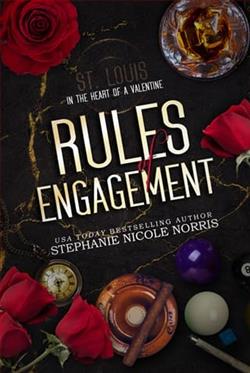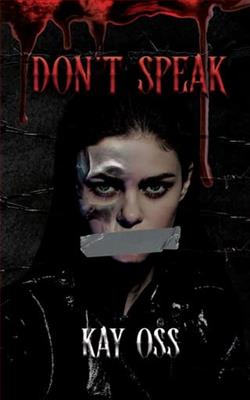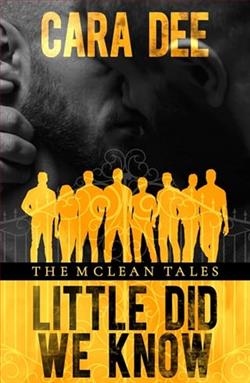Page 164 of Secrets Beneath the Waves
My hand is shaking, but adrenaline is still masking the pain.
“I’m fine,” I insist.
I convince myself it’s nothing more than a scratch, because I have to stay focused on my job. I have to get Polina out of here. We get to the bottom of the stairs, weaving our way around a group of slower pedestrians, tourists with backpacks who look lost.
“You think this will work?” she asks.
“We’re about to find out.”
At this point, I know we’re committed as I scan my metro card to validate it, head through the turnstile, then do the same for her.
“Do you still see him?” Polina asks.
I glance behind us again. “No.”
I pull out my phone as we go down a couple more flights of stairs to the platform, then past white tiled walls filled with advertisements and a row of orange plastic chairs.
“I’ve got an asset with a possible blown cover and an injured officer,” I say to the person on the other side of the line while a digital clock ticks off the seconds to the next train. “I need a pickup at Gare de l’Est, at the designated meet.”
A dozen points across the city have been set up for an immediate extraction of an officer in jeopardy. This is the first time I’ve ever had to make that call, and I pray it will be the last.
I still have Polina’s arm as I step onto the subway car. While I’m confident we lost the man, I’m not ready to assume anything. My hand goes to my side where blood has continued seeping through my shirt, and I tug on my jacket, making sure the wound is covered. I tell myself again that it’s only a scratch. That the bullet just skimmed my side. Because while I can’t examine it now, I’m starting to feel pain.
Jesus, I’m going to need some help getting out of this one.
Though it may seem counterintuitive, my faith in God has always been a catalyst for what I do, including my decision to join the CIA. I’ve been told that I can’t do what I do and hold on to my beliefs and values at the same time, but I’m convinced they’re wrong. Maybe it doesn’t make sense to some, but I see making the world a better place as an intelligence officer a calling. It’s not a role everyone can fill, but I’ve always been grateful I can.
Polina tugs on my arm, pulling my rambling thoughts back to the present. I force myself to keep walking to the next car.
“Eight stops,” I say.
Eight stops, and we’ll be safe.
My mind shifts again. This time to William. Four men had come after us, and at least one—if not all—were armed. Four to one odds should always be avoided, but just like I’ve convinced myself that the wound on my side is nothing, I assure myself that William is fine.
Because he has to be.
I focus on counting the stops on the map on the wall of the metro. Seven more. . . Six. . . Five. . . The train stops at every station. Dozens get off and then dozens more fill their spots in the crowded car. Polina spots an empty seat and pulls me toward it. I hesitate, but I’m feeling the pain now and my heart is racing. I sit down, still refusing to look at my side. No one else notices. To everyone else, we’re just two of hundreds of people all headed somewhere. No one notices the fear in my eyes or the blood seeping through my shirt. But while I’m supposed to be the one keeping Polina safe, I’m starting to wonder if I’ll be able to walk off the metro car.
My side is throbbing when we finally stop at the Gare de l’Est. Polina holds on to my arm as we step onto the platform and into the crowd, then head up the stairs. The East station is one of six large mainline railway stations in Paris, a hub for trainsheading to Germany, Switzerland, Luxembourg, and other places. I’ve been here dozens of times and always appreciate the 19th-century architecture—the arched windows, vaulted glass ceilings, and even the central clock tower. Today, all I can focus on is putting one step in front of the other as we cross the polished floors.
Someone with a backpack runs into me as we head toward the exit. I wince at the sharp jab of pain, then force myself to shake it off. There are no signs of the men who were after us, but I don’t feel safe. Instead, I feel completely vulnerable, knowing that William isn’t here to protect Polina, and I don’t think I can protect her either.
“What car are we looking for?” Polina asks.
I give her a description as we step outside. The wind hits me, filling my lungs with cold air. My vision blurs as I search for the car, and I’m struggling not to pass out. The station is busy with cars and people, and the noise is disorienting.
“There it is,” Polina says.
She helps me toward the car and into the back seat.
“She was shot,” Polina says as soon as she shuts the door. “Sam. . . Samantha. . . Can you hear me?”
I blink my eyes, trying to keep them open, then everything goes dark.
“Hey. . .how do you feel?”
I open my eyes and look up at Lizzie—our team’s data analyst and techno wizard—confused. I look around the small curtained-off room, trying to pull up memories of what happened. There are monitors beeping to my left. The overheadflorescent light seems too bright. I can hear people talking in the background.















